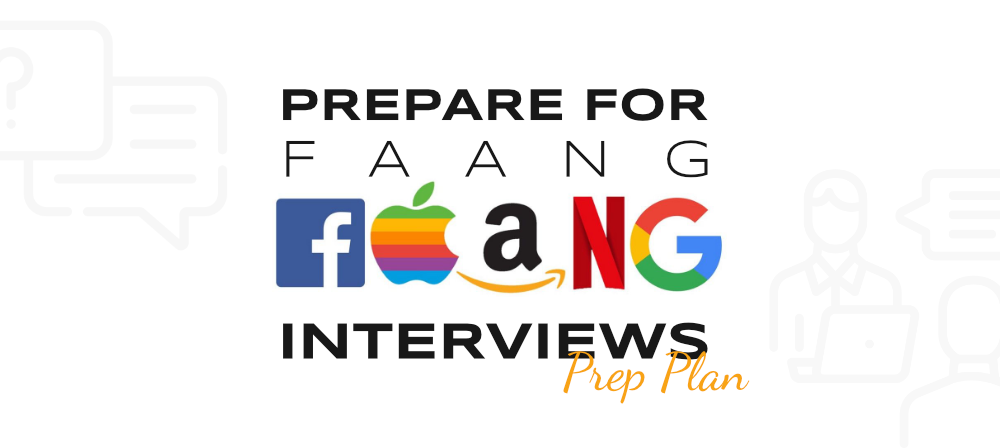All Categories
Featured
Table of Contents
I have tried to pass meetings at FAANG companies three times. Each time, I boosted the quantity of time I spent planning for the meeting. Over the years, I have actually checked out and watched a lot of info pertaining to interview prep work. In this short article, I wish to cover several of the facets which I found helpful in my journey.
This is close to real, but it is something that we can not alter, and we can only adjust to it. This short article will certainly be intriguing for engineers of all levels. Luck is a vital facet of any type of meeting. It's like a video game of Baldur's Gate 3 where every single time you roll the die, you might have a vital fail and fall short any type of possible meeting.

Possibly they have currently picked another candidate and your interview is just a part of the procedure which they can not avoid. Rejection is a normal component of the interview process.
Preparation is an essential aspect for passing the meeting process at a high level in leading firms. I am nearly specific that the average FAANG designer that has actually functioned for more than 10 years can not pass the interview procedure of their business without prep work.
What happens if I don’t use Machine Learning Prep for interview prep?
In one of my previous companies, I was a recruiter for 4 years with even more than 200 interviews. I usually asked candidates concerning their preparations, algorithms, and LeetCode troubles. I utilized this understanding to adjust the initial task for a prospect. Actually, if a candidate did not prepare for the interview, they had a small opportunity to pass the interview on a tool+ degree, even if they had one decade of experience.
Due to the fact that if they found out something 5-10-15 years ago and did not utilize it, they just kept in mind the top-level theory - interview success path. So, it is much better to plan for the interview. Also, as a part of preparation, it is necessary to comprehend the needs of firms. Different firms have various areas, tasks, and focuses, and it is much better to discover this information.

Previously, I check out that a good level of English is not vital for the meeting process. Yes, you have a chance to pass the interview with poor English, but you significantly reduce your possibility to pass it.
What is included in a Mock Coding Challenges program?
All of this requires communication and the ability to recognize what the recruiter says. As soon as, I had an issue with a job that used the word "produce" in its summary.
But can you understand this help? It is a 35-minute presentation. The core component of this interview is your capacity to present your concept to the job interviewer. If the job interviewer understands your concepts, and you locate the major instance, you will certainly pass the interview. Existing on your own. You need to be able to talk concerning your experience, your tasks, your team, and more.
One business did not provide me a job due to the fact that I often stammered in my answers to the supervisor. I passed all other meetings in this company with great responses, yet the supervisor had not been sure if I would communicate successfully in a team. Overall, your English level may develop issues for you and for the interviewer:: For you - you spend a great deal of power speaking.
Why is Machine Learning Interview important for my tech career?
For the interviewer - they invest extra power to understand you, and when they can't recognize you, they could decide that you are not appropriate for that role (tech skills development). What help me: A great deal of sessions with my English teacher. I have had 2-3 sessions each week for the last 5 years
An English instructor can also help you with the behavioral component of the meeting. It's worth investing money on an excellent microphone due to the fact that the interviewer will certainly spend less energy on recognizing you.
When feasible, I switch over to English. Likewise, this blog is a component of my effort to enhance my creating abilities. Companies are various. I can divide them right into a minimum of 3 degrees (it isn't a complete listing): Degree 1 - Large technology business like Meta, Google, Apple, and Microsoft. They typically have a name FAANG or MANGO (a new one).
Level 2 - Smaller firms that have a good product and pay well. But usually they have less employment opportunities and a less fully grown brand. Degree 3 - Little great firms that do not pay as high as big technology. Level 4 - Normally startups and companies where IT is not a priority.
Software Engineering Prep
Due to the fact that the most amount of people try to pass interviews in degrees 1 and 2, they have lots of people desiring to be interviewed. They boost the complexity of their interview to filter individuals. Degrees 3-4 typically do not have complex meetings, and the process could have only 1-2 steps.

They have coding sections where they expect you to create a for loop and perform basic operations like boosting or increasing numbers. Every time, I was puzzled at first due to the fact that I really did not expect it to be so simple. programming challenges.
It is intriguing to keep in mind that various companies have different lists of points. One business expects you to cover all edge instances in your code, while one more expects you to drive system layout interviews.
Consequently, it is better to understand what company anticipates from you to boost your opportunities. Degree 3 and 4 - usually, they do not have additional products for the meeting, and it is hard to discover experience from other candidates. Nevertheless, they usually don't have stringent needs. In my experience, I have had interview procedures for three different duties: Frontend role, Backend function, and Full-stack function.
Table of Contents
Latest Posts
The Best Courses For Machine Learning Interview Preparation
10 Proven Strategies To Ace Your Next Software Engineering Interview
Most Common Data Science Interview Questions & How To Answer Them
More
Latest Posts
The Best Courses For Machine Learning Interview Preparation
10 Proven Strategies To Ace Your Next Software Engineering Interview
Most Common Data Science Interview Questions & How To Answer Them